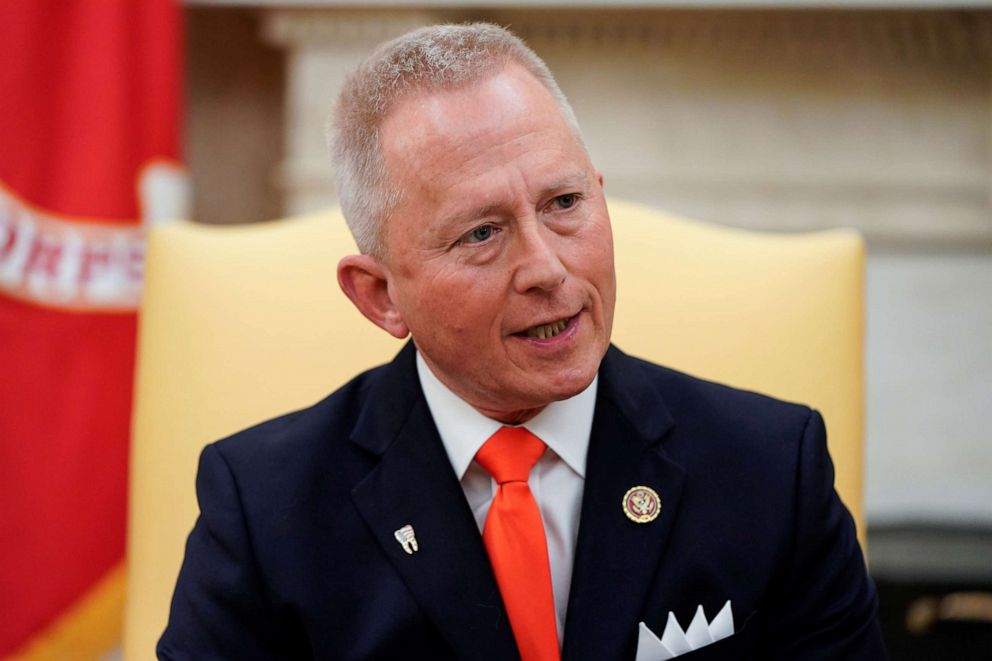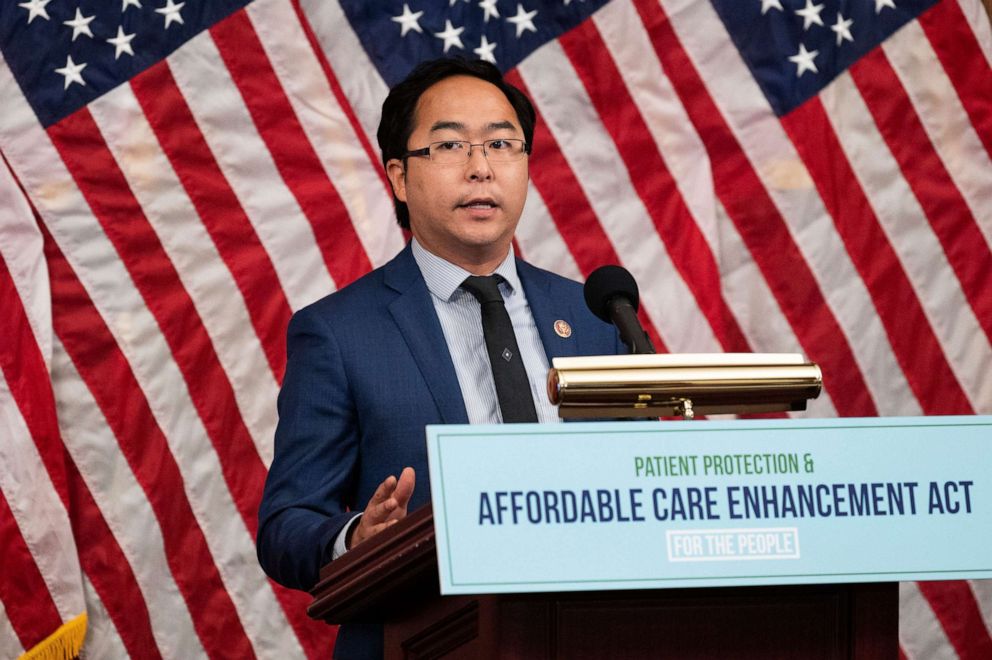Congressional races in New Jersey center around party loyalty, while progressive challengers look to oust moderate Democrats
A number of competitive primaries will wrap on Tuesday.
Yet another round of primaries are coming to a close Tuesday in New Jersey and Delaware, which both delayed their voting due to the coronavirus pandemic.
New Jersey opted to mail postage-paid absentee ballots to every one of the state's 3.6 million registered Democrats and Republicans, while unaffiliated voters can request an absentee ballot on their own. New Jerseyans are casting ballots for the presidential race, U.S. House races and other local races further down the ballot.
Ballot drop boxes are available for voters casting a ballot in the primary races, many of which have closely contested Congressional battles afoot, with limited in-person voting around the state.
In Delaware, solely the presidential primary, which has all but been decided, is on the ballot. Voters in Delaware were not mailed ballots like those in New Jersey, but absentee ballot provisions were expanded to allow voters who did not want to vote in-person to request an absentee ballot through the mail.
New Jersey primaries largely dictated by ex-Democrat, Rep. Jeff Van Drew
Jeff Van Drew, R-N.J., may be largely absent from the national narrative, but he is still the star of the show in South Jersey, where a five-person Democratic race has narrowed to two front-runners bidding to challenge the one-term congressman.

Brigid Callahan Harrison, a political science professor at Montclair State University, states her opposition to Van Drew loud and clear on her campaign's website: "Jeff Van Drew betrayed our trust. Join Brigid Callahan Harrison to turn South Jersey blue, again."
Callahan Harrison is running against Amy Kennedy, a former public school teacher and mental health advocate. Kennedy, who is married to former Rhode Island Rep. Patrick Kennedy, is tapping into her familial connections as the campaign comes to a heated close.
Not unlike many other primaries, both of the candidates seem to be more focused on drawing comparisons between their opponents and Van Drew versus contrasts on each other.
Kennedy's campaign, according to her website, argues that Harrison is "cut from the same cloth as Jeff Van Drew" and "cannot be trusted."
Callahan Harrison is making similar claims about trust when it comes to Kennedy, accusing Kennedy's husband Patrick of reportedly funding a newly created outside group to support Kennedy’s bid.
Kennedy launched her bid after Van Drew made his party switch, setting in motion the battle for party support between the two Democrats. She nabbed an endorsement from Democratic Gov. Phil Murphy and the Atlantic County Democrats, the largest Democratic coalition in the state.
Meanwhile Callahan Harrison's early entry into the race gave her the opportunity to scoop some key support from political figures around South Jersey including Sen. Cory Booker, D-N.J., businessman George Norcross and from county parties in six of the eight counties in her district.
Health care dominates for Democrats in the 3rd Congressional District
Next door in the state's 3rd Congressional District, Democratic Rep. Andy Kim, one of 30 Democrats in districts President Donald Trump won in 2016, might be unopposed in his primary Tuesday, but faces one of the toughest reelections just a few months from now.

The freshman Democrat flipped his district, which stretches from the suburbs of Philadelphia to the Jersey Shore, from red to blue in 2018 by the narrowest of margins -- less than two points -- largely on the issue of health care. Now, as he sits on the front lines of the House's oversight of the response to the coronavirus pandemic as a member of the bipartisan committee on the coronavirus, he told ABC News that the coronavirus has "reinforced" what brought him into the political sphere in the first place.
"Every town hall that I've done -- 22 town halls that I've done -- I consistently hear about health care," he said. "This only exacerbates the concerns that led me to run for office."
Kim said he is seeing evidence of a suburban revolt against Republicans, in part, driven by president's response to the virus.
"I know that a number of people that I've talked to who were Republicans and supported Trump, a number of them kind of relayed to me, after the president's comments about ingesting Lysol, that's just kind of the final straw for them," he said. "I am consistently seeing that type of shift - this recognition - that this president has failed in his responsibilities in securing us during this crisis and this pandemic."
Two Republicans are vying to take on Kim in November: businessman David Richter and former Burlington County Freeholder Kate Gibbs.
Richter had originally filed in the 2nd district to run against then-Democrat Van Drew, but hopped districts after Van Drew's party switch. A Trump ally, Richter launched his bid for Congress at the president's Jan. 28 rally in Wildwood, New Jersey, and has touted endorsements from the National Rifle Association, among others.
Gibbs, who lost her reelection bid to the Burlington County Board of Freeholders in 2018, has endorsements from the county's Republican Committee, state Senate Minority Leader Tom Kean Jr and the GOP-aligned Main Street Partnership PAC, which advocates for centrist policy proposals and bipartisan legislation.
A number of progressive challengers are running against Democrats in other districts across the state: in the 5th Congressional District, Arati Kreibich, who is backed by Sen. Bernie Sanders, I-VT, is challenging Rep. Josh Gottheimer, who flipped the seat in 2016. In the 6th Congressional District, two progressives are vying to unseat House Energy and Commerce Chairman Rep. Frank Pallone Jr.
In the 7th, state Senate Minority Leader, Tom Kean Jr., who endorsed Gibbs, is hoping for a primary win to take on freshman Democratic Rep. Tom Malinowski.
Ballots are due back into the hands of New Jersey elections officials by 7 p.m. local time on Tuesday. Drop boxes will be available, as well as limited in-person voting at polling centers.
In Delaware, at least six polling places will be operational in each county. Absentee ballots must be submitted by 8 p.m. Tuesday to count.
ABC News' Kendall Karson contributed to this report.



